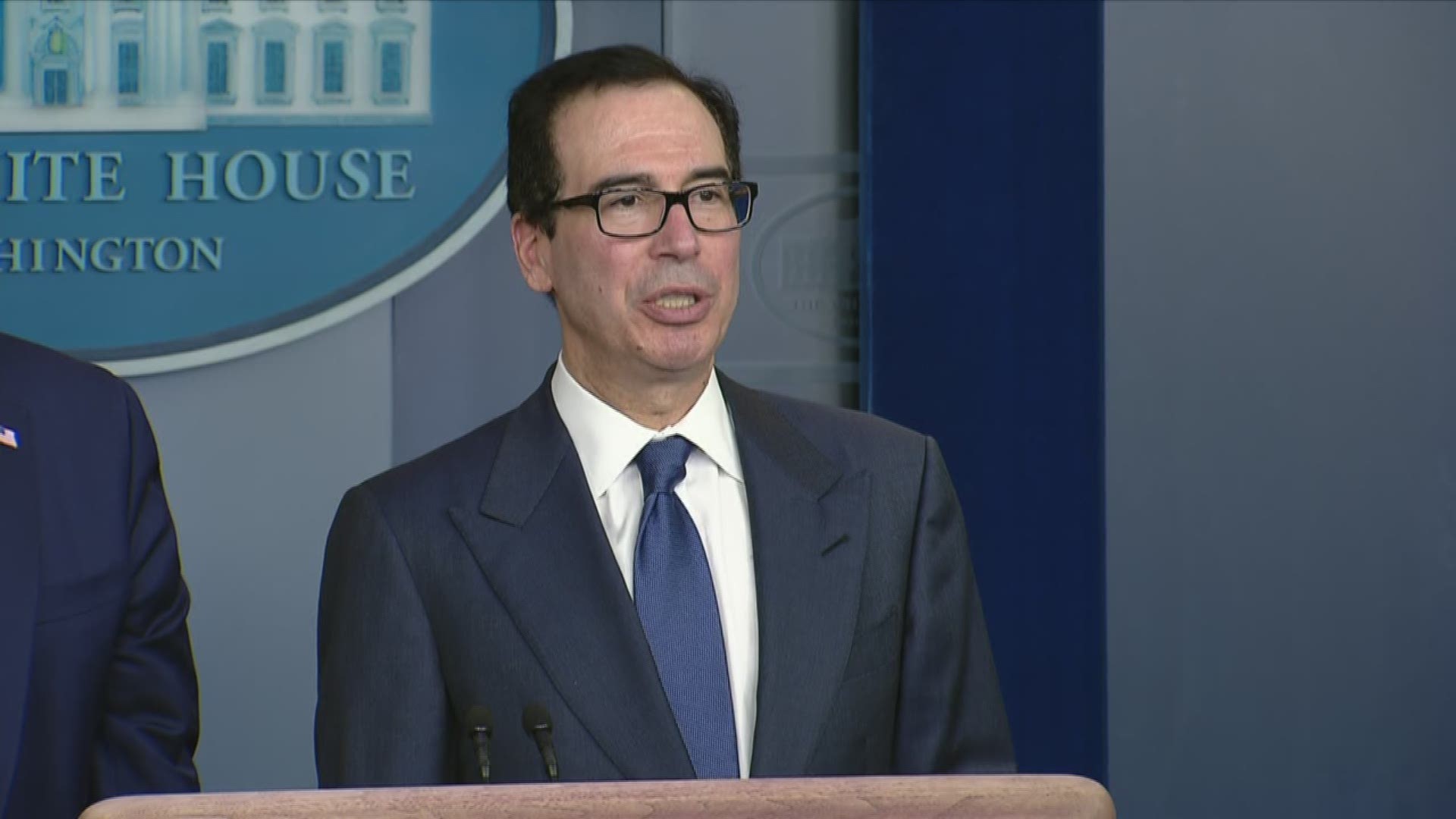HOUSTON — You're working from home. The kids are out of school. And temperatures are already hovering around 90 degrees. That's a recipe for skyrocketing electric bills.
Reliant offers these energy efficiency tips to help save some money.
- Manage the temp. Set your AC fan to the "auto" rather than the "on" setting, which can help decrease energy costs and make it easier for your AC to maintain your desired temperature. You can also rotate your ceiling fan counter-clockwise to create a wind chill effect for a more comfortable living environment. Keep in mind when your thermostat is set below 78° F, each degree cooler can increase your costs by up to 7%.
- You can rotate your ceiling fan counter-clockwise to create a wind chill effect for a more comfortable living environment.
- Load up the dishes. With restaurant service suspended in many areas, you may be cooking more at home. Dishwashers require a lot of energy to wash and dry, so run only a full load of dishes on the automatic energy-savings cool-dry cycle. If your dishwasher doesn't have this feature, turn it off after the final rinse and let the dishes air dry.
- Do laundry at night or early morning. Avoid using large appliances like the clothes washer or dryer during the hottest part of day. These appliances can cause your AC to work harder to keep your home cool. Run fewer, large loads back-to-back to take advantage of the heat buildup.
- Pull out the grill. Enjoy this time with your family by having a cook out and using your outdoor grill instead of the oven. When cooking inside, use microwaves and slow cookers instead of electric stoves or ovens. Use glass or ceramic pans, which retain heat better.
- Enjoy the outdoors. Get caught up on your gardening and landscape with shade trees to reduce heat from the outside. Trim plants and remove any obstructions near your AC equipment to help it run more efficiently.
- If you have a pool, ensure the pool pump does not run 24/7 by installing an automatic timer.
Coronavirus symptoms
The symptoms of coronavirus can be similar to the flu or a bad cold. Symptoms include a fever, cough and shortness of breath, according to the Centers for Disease Control. Some patients also have nausea, body aches, headaches and stomach issues. Losing your sense of taste and/or smell can also be an early warning sign.
Most healthy people will have mild symptoms. A study of more than 72,000 patients by the Centers for Disease Control in China showed 80 percent of the cases there were mild.
But infections can cause pneumonia, severe acute respiratory syndrome, kidney failure and even death, according to the World Health Organization. Older people with underlying health conditions are most at risk for becoming seriously ill. However, U.S. experts are seeing a significant number of younger people being hospitalized, including some in ICU.
The CDC believes symptoms may appear anywhere from two to 14 days after being exposed.
Human coronaviruses are usually spread through...
- The air by coughing or sneezing
- Close personal contact, such as touching or shaking hands
- Touching an object or surface with the virus on it, then touching your mouth, nose or eyes before washing your hands.
Help stop the spread of coronavirus
- Stay home when you are sick.
- Eat and sleep separately from your family members
- Use different utensils and dishes
- Cover your cough or sneeze with your arm, not your hand.
- If you use a tissue, throw it in the trash.
- Follow social distancing
Lower your risk
- Wash your hands often with soap and water for at least 20 seconds. If soap and water are not available, use an alcohol-based hand sanitizer.
- Avoid touching your eyes, nose, and mouth with unwashed hands.
- Avoid close contact with people who are sick.
- Clean and disinfect frequently touched objects and surfaces.
- If you are 60 or over and have an underlying health condition such as cardiovascular disease, diabetes or respiratory illnesses like asthma or COPD, the World Health Organization advises you to try to avoid crowds or places where you might interact with people who are sick.
Get complete coverage of the coronavirus by texting 'FACTS' to 713-526-1111.

